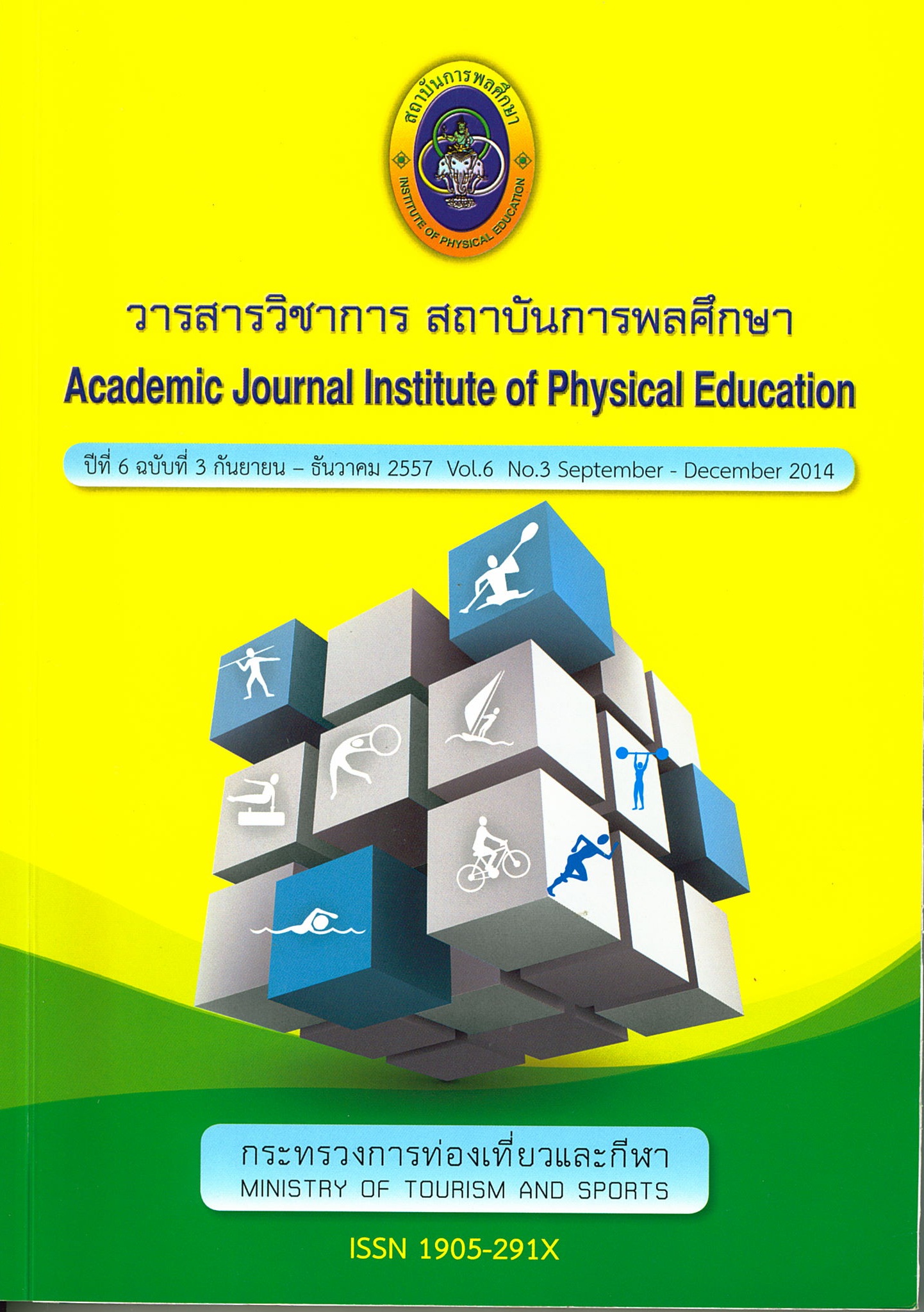Proposed Model for Developing Sports Service Business in Ho Chi Minh City
Main Article Content
Abstract
The purpose of this research was to propose a model for developing sports service business in HCMC. Informal interview was applied for data collection from the owner/ manager of 23 private fitness clubs for finding out the business operation. In addition, an in-depth interview of 10 experts was carried out for validating the proposed model, then IOC and focus group of 11 experts was executed for testing the proposed model. The results found that the proposed model for developing sports service business in HCMC is composed of (1) business visions and objective orientation, (2) organization structure, (3) attractive marketing strategies, (4) frequently schedule of facility management and maintenance, (5) human resource improvement, (6) safety/risk management for members, and (7) satisfy. The model was fit and well accepted from the experts.
Article Details

This work is licensed under a Creative Commons Attribution-NonCommercial-NoDerivatives 4.0 International License.
The published article is a copyright of the Academic Journal of Thailand National Sports University. The passage appeared in each article in this academic journal is a perspective of each author which is not related to the journal. Each author is required to be responsible for all components of his/her own article. If there are any mistakes, each author must be responsible for those mistakes on his/her own.
References
Chelladurai, P. and Chang, K. (2000). Targets and Standards of Quality in Sport Services. Journal of Sport Management Review, 3(1): 1 - 22.
Choi, J.P. and Cho, Y.C. (2001). The Best Service Model through the Influence of Service Quality on Customer Satisfaction and Repurchase Intentions at Public Culture and Sport Center. Proceeding of 2001 Seoul International Sport Science Congress, August, Korea, 23-25.
David, C.W. (1998). Sport Management and Administration. London: E & FN Spon.
Hoecke, J.V. and Knop, P.D. (2004). Quality Management in Sport Clubs. Sport Management Review, 1: 57-77.
Hyung, H.K. (2007). Globalness or Barclays Premier League: Moderation, Effects of Ethnocentrism. Journal of 2009 Asian Association for Sport Management Conference, Taipei, 11-12.
Mullin, B., Hardy, S. and Sutton, W. (2007). Sport Marketing. (3rd ed). United States of America: Human Kinetic.
Murray, D. and Howat, G. (2002). The Relationships among Service Quality, Value, Satisfaction, and Future Intentions of Customers at an Australian Sport and Leisure Center. Journal of Sport Management Review, 5: 25 - 43.
Papadimitriou, D. and Karteliotis, K. (2000). The Service Quality Expectations in Private Sport and Fitness Centers: A Re-Examination of the Factor Structure. Sport Marketing Quarterly, 9(3): 157-164.
Parks, J. B. and Zanger, B.R.K. (1990). Sport and Fitness Management. Career Strategies and Professional Content. United States of America: Human Kinetics.
Shank, M.D. (2009). Sport Marketing-A Strategic Perspec. (4th ed). United States of America: Pearson Education International.
Shilburry, D., Websterbeek. H. et.al. (2009). Strategic Sport Marketing. (314ed). Australia: Allen & Unwin.


